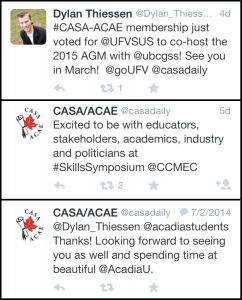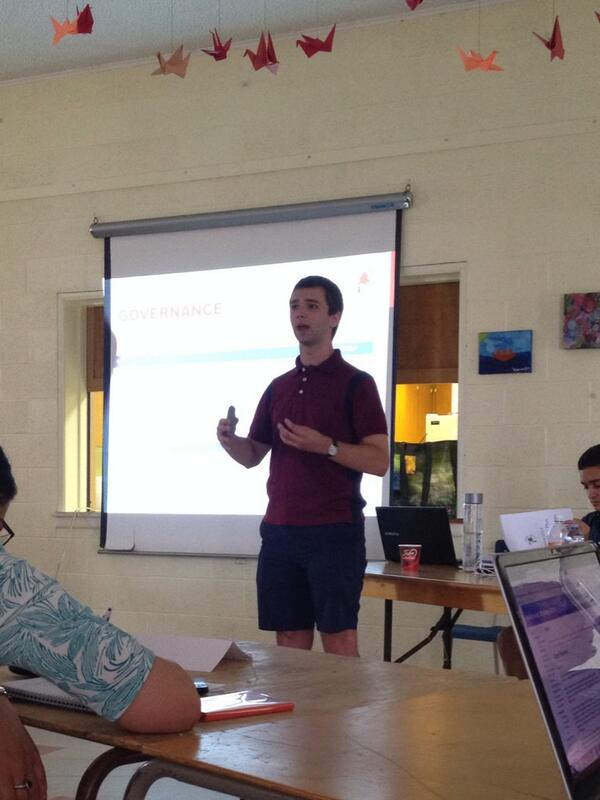By Megan Lambert (The Cascade) – Email
Print Edition: July 16, 2014
“It was really cool to see the work slowly materializing into something more tangible,” said Student Union Society (SUS) VP external Dylan Thiessen.
SUS attended the Poly-Strat CASA (Canadian Alliance of Student Associations) conference in Nova Scotia July 9-11, where members discussed issues that relate to students. CASA prepared student unions across Canada for “Lobby Week,” a conference that connects students and MPs to advocate for change.
CASA members focused on mental health awareness, youth unemployment, and access to financial aid, which looked at anything from unpaid internships to helping recent graduates find jobs in their field, according to Thiessen. 
“We want to increase the number of bursaries and non-repayable grants,” he continued. “Right now a lot of students are not even eligible for student loans because their parents make a lot of money, but it doesn’t take into consideration [the parents’] willingness to pay for their children’s education.”
Thiessen went on to note that the current student loan process doesn’t account for any debt the parents have, and is instead solely based on their annual income.
“There is an appeal process,” he noted, “but a lot of students don’t pursue that and a lot of students don’t even apply for student loans just out of perceived ineligibility.”
For alumni, Thiessen notes CASA will be asking the government to remove select tax credits for graduated students and reinvest that into grants and bursaries available to students beginning post-secondary education.
“So, it’s kind of like helping students pay for their education at the beginning while they’re doing their education,” Thiessen said.
CASA’s agenda seeks to address increased aboriginal access to education. However, a chief stepped down from their position in the Congress of Aboriginal Peoples.
“I think for the time being, that’s preventing CASA from pursuing anything aboriginal-related,” Thiessen concluded.
CASA linked mental health advocacy with financial aid, hoping to reach the federal government by appealing to values like family and the economy.
“When students have to take an unbearable amount of debt or loans in order to finance their education, that increases stress,” Thiessen explained. “It can have a lot of adverse mental effects for students, and that in turn can really place a lot of strain on families, and make them less productive in the workplace.
“They won’t be contributing to society or to the economy as they could be if they were fully healthy.”
SUS presents these issues during CASA’s “Lobby Week” conference in November 2014.



